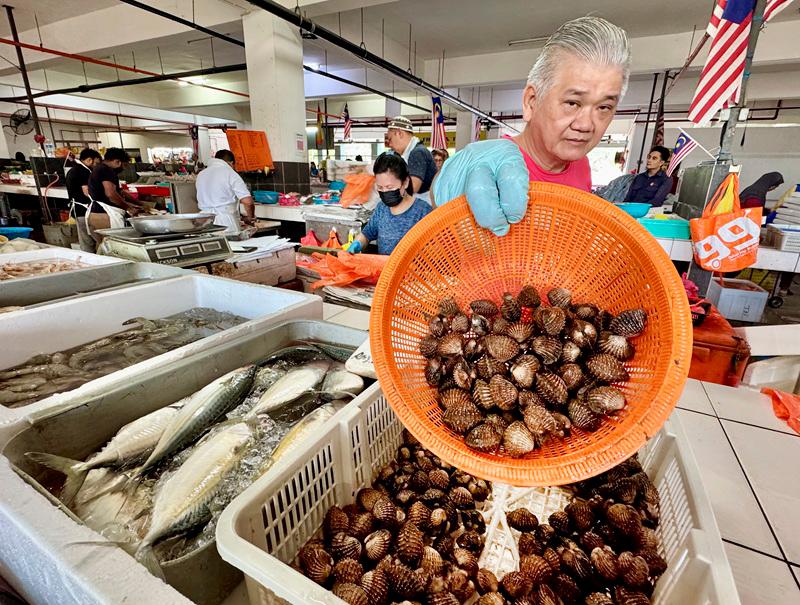PETALING JAYA: Pollution has killed Sabak Bernam’s cockle seed production, which has fallen from 555,048 metric tonnes in 2019 to zero in 2023, causing concern among academics, especially since Malaysia’s cockle industry is Southeast Asia’s largest.
“Sabak Bernam was one of the largest cockle seed production areas in Selangor and Peninsular Malaysia’s western coast, (but) other important seed production areas such as Muar-Rengit in Johor, Kuala Kedah in Kedah and Lekir-Bagan Datuk in Perak still exist,” said Universiti Putra Malaysia Department of Aquaculture Fisheries Biology lecturer Prof Dr Aziz Arshad.
However, Universiti Putra Malaysia Food Science Department food toxicologist Assoc Prof Dr Ahmad Faizal Abdull Razis said the concern is growing over the safety of seafood harvested from polluted waters. Hence, targeted strategies are crucial to tackle contamination and protect public health.
“Toxins from harmful algal blooms, vibrio bacteria, pesticides and industrial chemicals in polluted waters can contaminate cockles, causing food poisoning, gastrointestinal issues, liver damage, neurological problems and long-term risk of cancer,” he said.
Ahmad Faizal warned that consuming even small quantities of cockles exposed to pollutants can be dangerous, with the risk largely depending on the type of toxins present and their concentration.
Aziz added that the death of cockle production in Sabak Bernam has affected farmers there and in Selangor, especially those who depend on seeds produced from spatfall areas (breeding grounds).
“Improving farm management, protecting water quality and preserving habitats for seeds and growth is critical to sustaining the industry.”
He said environmental disturbances and seed smuggling activities have also contributed to reduced production, which impacts the supply chain and consumers, causing prices to rise.
In case of low production, importing cockles from neighbouring countries is not an option as Malaysia is the sole major producer.
Aziz said environmental conservation remains a long-standing issue, with measures required to mitigate its impact.
However, greater public and industry awareness is needed to prevent the illegal dumping of toxins, organic pollutants and agricultural waste into aquatic ecosystems.
He said cockle beds near estuaries are particularly vulnerable, and greater coordination between the Fisheries and Environment departments is needed to protect them and other aquaculture ventures in the country.
Ahmad Faizal urged the government to implement regular testing of water quality and seafood products, especially in known polluted areas, including setting up monitoring stations to track heavy metals, bacteria and toxins in shellfish.
He said several areas in Malaysia, particularly in Selangor and around the Klang Valley, are known to be polluted due to industrial activities and agricultural runoff.
“Coastal areas near industrial zones such as Port Klang and densely populated urban centres where untreated sewage and chemical discharge are common are more prone to contamination.
“Fishing in areas near rivers that carry polluted waters is also dangerous, especially those with poor water management or where pollution control measures are inadequate.”
Ahmad Faizal said monitoring and regulating seafood safety in affected areas should be part of a National Seafood Safety Programme, which requires a coordinated effort across multiple agencies.
“Seafood, including cockles, must be safe for human consumption. Monitoring contaminants effectively and transparently would be a step in the right direction.
“Local authorities and fishermen should also establish regular monitoring programmes to ensure water quality and seafood safety.”









